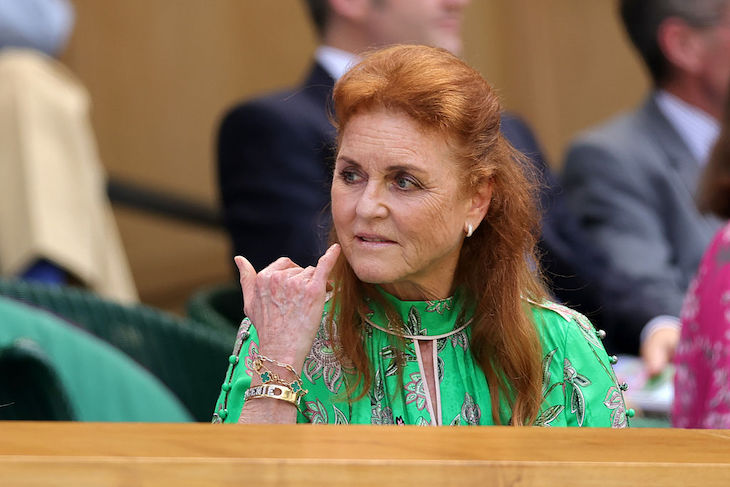Rugby union has always attracted a certain type, the ‘play hard, party hard’ sort. I remember a former teammate – a prop, perhaps not surprisingly – who could drink a pint of his urine in under ten seconds.
An England prop, Colin Smart, once downed a bottle of after shave after a Five Nations match and spent the evening having his stomach pumped in a Paris hospital. That was in the 1980s, the same decade when England’s Dean Richards and Scotland’s John Jeffrey took the Calcutta Cup for a tour of Edinburgh pubs after a match. As one of them later quipped – probably before he was presented with the repair bill – that the cup now resembled the Calcutta Plate.
This was an era when rugby players could write off drunken idiocy as ‘high jinks’; the same harsh judgement that applied to footballers didn’t apply to them. Perhaps it was a class thing, the old cliché about rugby being a game for thugs played by gentleman and vice versa for football.
It can’t be blamed on the pressure players are under or the ‘pornification’ of western society
If only that were true today. Six years ago in The Spectator I described how rugby wasn’t the game I remembered playing with such love in the 1990s and 2000s. I lamented the rise of the ‘strapping spoiled brat’ who intimidated officials with ‘bolshy gesticulations or looks of snarling contempt’.
I blamed the bad behaviour on a shortage of life skills, the fact that the modern top player leads a pampered existence, going in most cases straight from school to a professional club. The great England amateur team of the early 1990s contained doctors, builders, policemen, fighter pilots and solicitors. They were men of iron and men of ethics. The same can’t be said of some of today’s professionals.
In my article in 2018, I referenced the recent trial of two Ireland internationals on charges of rape. They were eventually acquitted although the ‘horrific sexism’ they had displayed towards the woman in question resulted in their being sacked by their club.
This month, a court in Bordeaux convicted three professional players – an Irishman, a Frenchman and New Zealander – of rape, sentencing them to between 12 and 14 years in prison. Two other players present at the gang rape, including the former Ireland international Chris Farrell, were found guilty of failing to prevent a crime. The drunken rape occurred at the Grenoble team’s hotel after a match in 2017 in the French championship.
There have been other incidents, less serious in nature but nonetheless revealing a disturbing brutality towards women. The Samoan international Fritz Lee, who plays for Clermont, one of the top French clubs, will be sentenced next year by a court after admitting a charge of aggravated assault. A waitress in a bar suffered a broken wrist in the incident in which Lee was drunk.
A Fijian international Vinaya Habosi, who plays for another of France’s leading clubs, Racing 92, was taken into custody in September after allegations of domestic violence. Habosi, who showed ‘signs of drunkenness’, was later released after his wife withdrew her complaint.
Two French internationals have recently been convicted of domestic violence and one, the prop Mohamed Haouas, was again in the headlines this month after being arrested for drunk-driving in Montpellier.
One of Haouas’ teammates at Montpellier is Stuart Hogg, one of the greatest players of his generation, a man who has won over 100 caps for Scotland and the British Lions.
Next month he will be sentenced after admitting ‘repeated abusive behaviour’ towards his estranged wife over a five-year period. The court heard how he shouted and swore at her, often while drunk, and tracked her movements.
There have been other unsavoury incidents involving international rugby players this year; England’s Billy Vunipola was tasered by police in a Spanish bar after he ran amok, and France’s Melvyn Jaminet was banned by his federation for six months after posting a racist message on social media while appearing to be under the influence.
What has gone wrong in rugby union? It can’t be blamed on the pressure players are under or the ‘pornification’ of western society because we’re not seeing similar incidents in top-flight football or cricket. On the contrary, football has cleaned up its act in the last few years and its players are (mostly) excellent role models.
But rugby is a decade or more behind football in adapting to the money that has flooded into the sport; with that money comes fame and pressure, and while football clubs and national bodies have implemented comprehensive education programmes for its young players, rugby has not.
In October, the French Rugby Federation introduced a code of conduct for its players, including a crackdown on alcohol consumption. That’s a start but rugby’s problems run deeper than the inability of some players to handle their drink.
In English football, for example, an initiative was launched in 2006 across 90 professional clubs called ‘Premier League Kicks’; one of its five key objectives is to ‘work with young people to reduce violent behaviour and develop pro-social attitudes and skills’.
Professional rugby needs to better educate its players. Compared to the 1990s generation, players today are far more developed physically but not emotionally. They have the bodies of men and the minds of adolescents. It’s time rugby grew up.








Comments